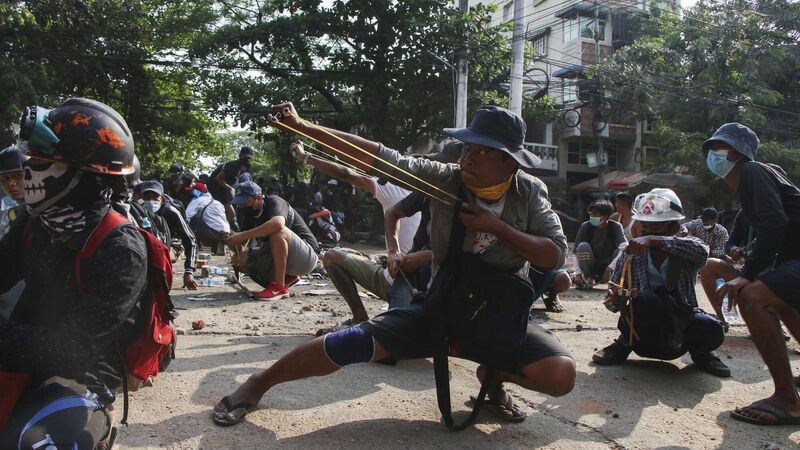Myanmar has been under military rule since it won independence from Britain in 1948. Though nearly all former colonies, this one included, experienced a violent interregnum, the people of Myanmar have endured more than seven decades of post-colonial instability, autocracy, and violence.
Free elections in 2015 led to a government headed by Aung San Suu Kyi. In 2017, Myanmar’s army drove more than half a million Rohingya Muslims into Bangladesh, in what the UN called a “textbook example of ethnic cleansing”. The military, which retook power last month, continues to rule with an iron rod, indifferent to international norms or censure.
Even in the context of that unfortunate country’s violent history, this weekend’s street carnage is exceptional. State security forces killed 114 people. “They are killing us like birds or chickens, even in our homes,” said a resident in the central town of Myingyan.
Just as Irish citizens are advised to leave the country, pro-democracy protesters in many countries will look on with dismay at the latitude a tyranny can assert if the international community does no more than issue condemnations. Echoing his peers, Simon Coveney, the foreign minister, said: “The security forces have disgraced themselves... Tragically, that kind of condemnation has made little enough difference to the lives of the people of Myanmar over the last 70 years, but the alternative is too grim to even contemplate.”
Read More
CONNECT WITH US TODAY
Be the first to know the latest news and updates













